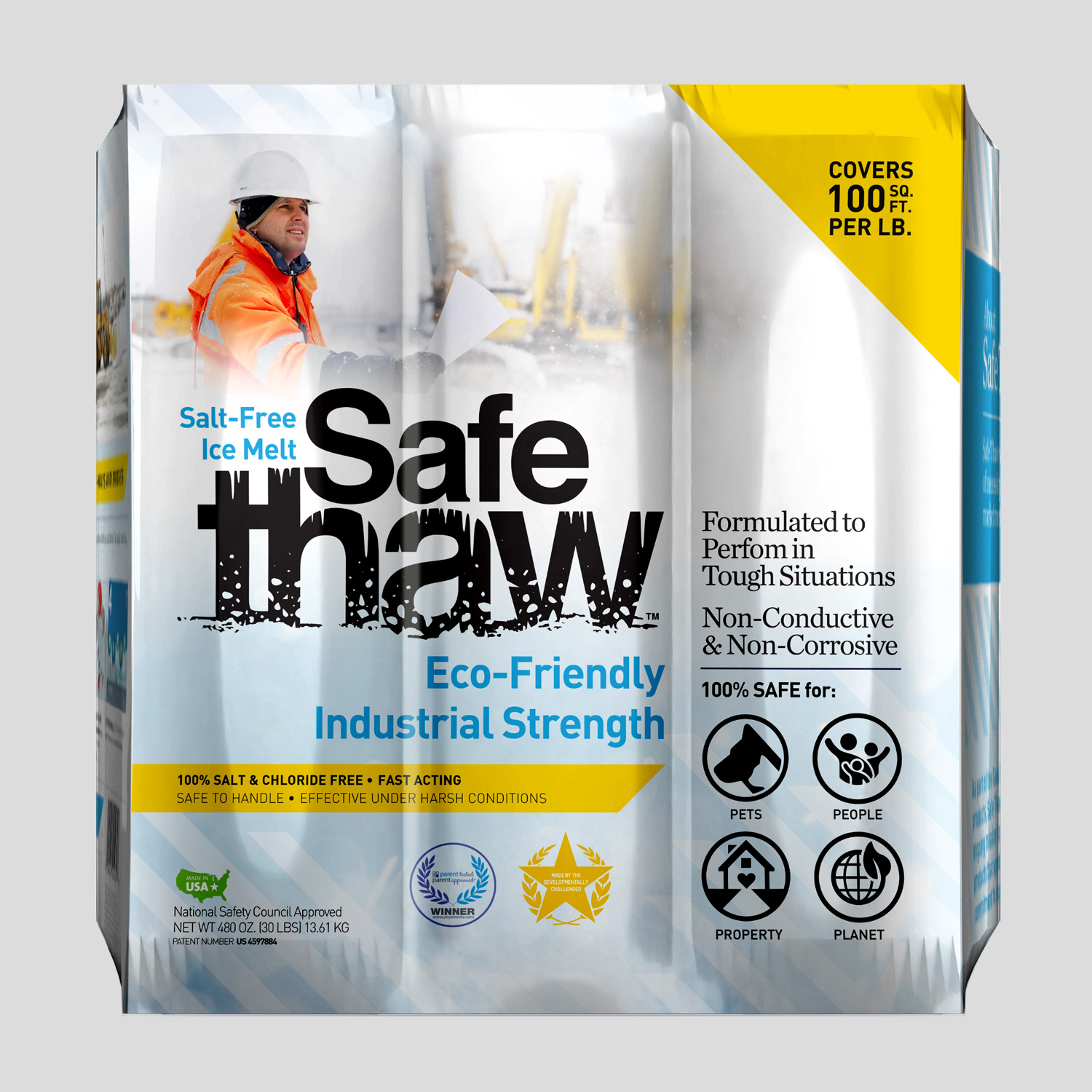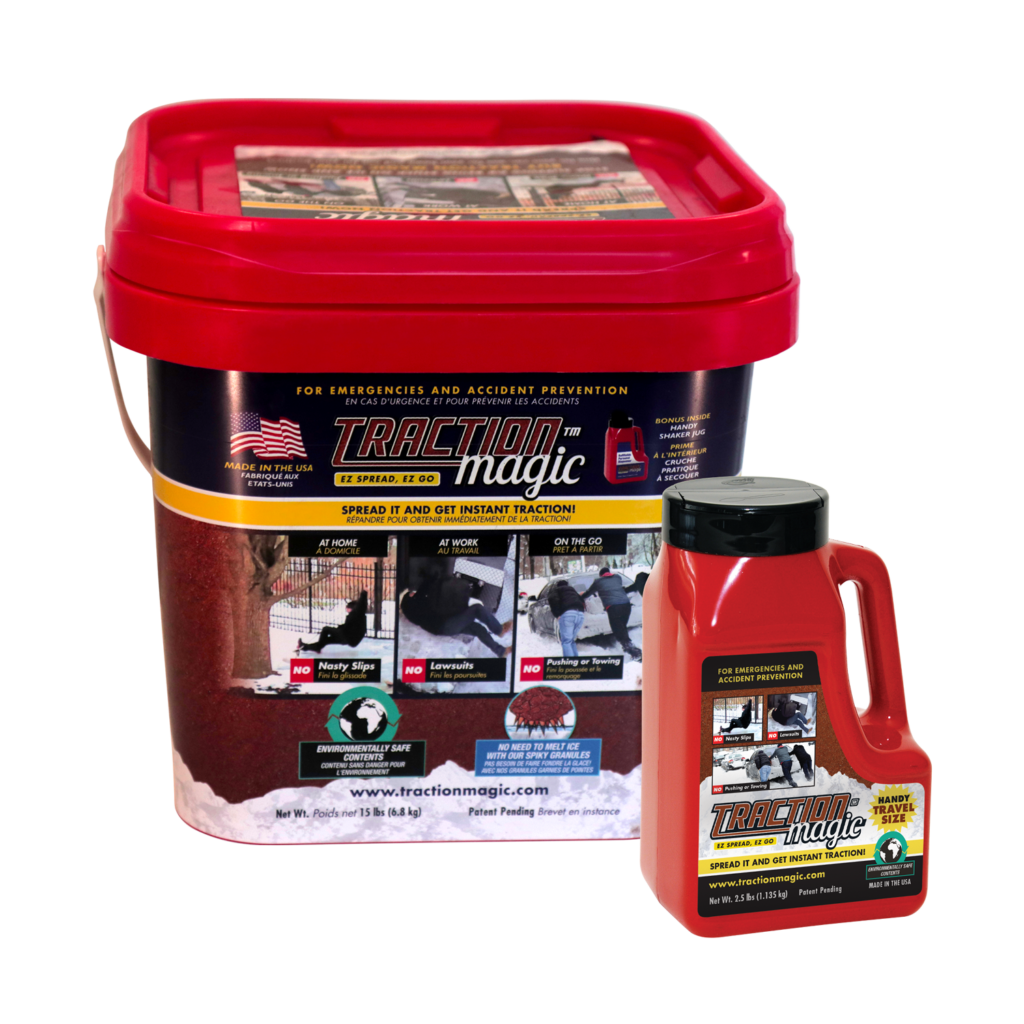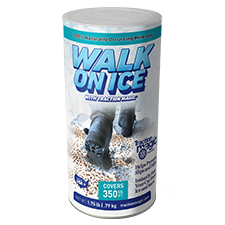Ice Melt For Composite Decking: Pros And Cons

If you live in a cold climate, you know that ice melt is a must-have to keep pathways clear and safe during the winter. However, the same ice melt safe for cement patios can leave burn marks on your composite deck (if not used correctly). Before you look for the best ice melt for composite decking, here are a few important points you must know.

What Is A Composite Deck Made Of ?
Composite Decking is a great alternative to wood but has its challenges. You must understand what composite material is and how it differs from others.
Composite materials are made out of more than one type of material. They’re often composed of plastic, fiberglass, resin, and other additives to create a strong yet lightweight material. Composite decks are not wood, plastic, or metal; they’re composed entirely of composite materials—which makes them more expensive than traditional options like cedar or pressure-treated pine boards.
Using Chemical-Based Ice Melt On Composite Decking
We never recommend using a chemical-based ice melt on your composite decking. These ice melt products contain chlorine that can permanently damage the surface of the decking and make it look like you’ve been smoking cigarettes on your patio for years.
Here’s why: Composite decks are made of wood fibers and plastic, so they’re not porous materials like cedar or redwood. They also don’t absorb water, so they’re not damaged by rain. These two facts mean ice melt won’t get absorbed into the decking. It will sit there until the sun comes out later in the day and melts it off—which means those white streaks will also be left behind!
In addition to damaging your deck’s appearance, ice melt could also be bad for you. Using chlorine-based products with composite decks could leave behind harmful chemicals that can cause respiratory problems in humans and pets alike!

Blizzards Are Here—Stock Up on Safe Thaw Today!
Safe Thaw was created as the ice management solution for tough winter environments. Ideal in commercial and industrial properties, shops, government agencies, bridges, and construction.
Ice Melt for Composite Decking: A Safe Solution
Composite decking, popularly known as Trex decking, is loved for its durability and ease of maintenance. However, these decks can become extremely slippery when covered with ice and snow. So, the question arises: “How to make composite/Trex decking less slippery?”
The best ice melt for composite decking is one that will not only effectively melt the ice but also cause no harm to the deck material. Safe Thaw is an ideal solution. It’s a non-toxic, pet-friendly ice melt that won’t damage your deck or the surrounding vegetation.
But, can you use ice melt for composite decking? Yes, you can, and it’s recommended if you want to prevent slipping accidents. Safe Thaw is one of those products that is indeed safe for composite decking. It does not contain salts or chlorides, which can corrode the metal fixtures of your deck and damage its surface.
100% Salt & Chloride-Free Ice Melt for Winter Storm Protection.
Best Ice Melt For Composite Decking
If you’re looking for a safe ice melt for composite decking, Safe Thaw is your go-to. It’s considered the best ice melt for composite decking as it contains modified urea. This product has special surfactants, inhibitors, and ice melting boosters. Therefore, it can be used on any outdoor surface, including concrete, stone patios, and wood decks.
Urea is a natural ingredient. This means no damage to your composite decking boards or patio stones. This is also why Safe Thaw is considered the best ice melt for cement driveways. In addition to being safe for all surfaces (even indoor ones like laminate floors), this substance is also biodegradable. So there’s no need to worry about leaving behind harmful residue after winter has passed!
Winter Storms Are Here!
Stay Safe with Our 100% Salt And Chloride-Free, Pet Safe Ice Melt.
Conclusion
Ice melt is essential for keeping your walkways safe, but you must use the right ones. What may seem like a small mistake can cause lasting damage to your decking. It’s best to avoid all ice melts with magnesium, potassium, and calcium chloride-based products. Safe Thaw is a safe choice as it is a chemical-free toxic-free ice melt.
FAQs
Try Also Our Other Winter Safety Products:
Traction Magic
Stay safe on slippery surfaces with a product that’s 100% natural and safe for pets, people, and your property. Whether it’s sidewalks, steps, or even your car’s traction, Traction Magic is the go-to choice.

Walk On Ice
The handy disposable canister can be taken everywhere, with the same 100% naturally occurring minerals that provide instant traction on ice or snow. Use it on sidewalks, steps, or as an instant traction agent for your car.



